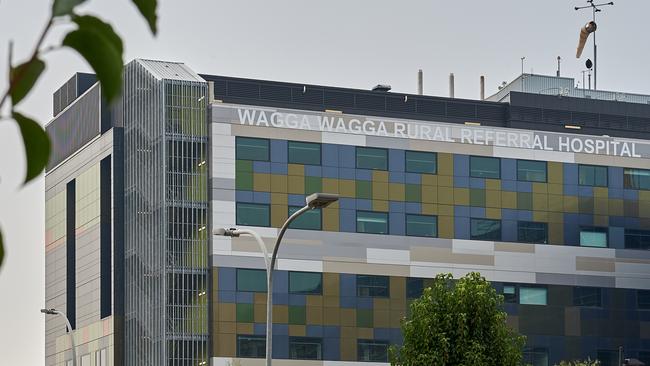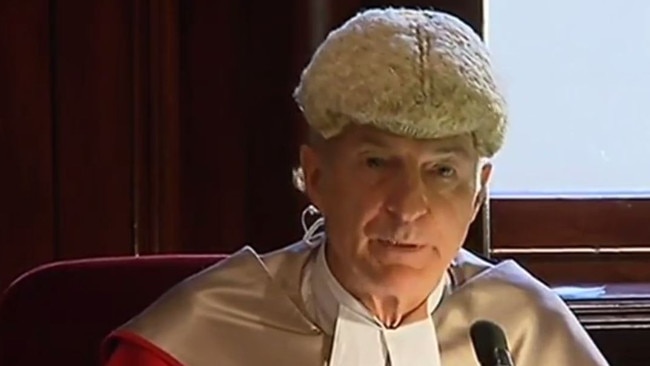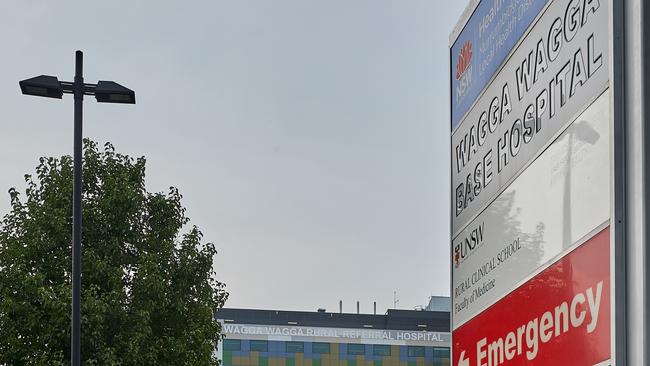Kathleen Coffey ordered to pay Wagga Hospital’s legal costs in case after son’s premature birth
A woman who tried to sue Wagga Base Hospital after her son was born with injuries from a premature birth has been ordered to pay the hospital’s legal costs.

The Wagga News
Don't miss out on the headlines from The Wagga News. Followed categories will be added to My News.
- Eight more arrested over alleged Riverina drug ring
- Corey and Prue Ireland’s debts revealed
- Man fronts court accused of assaulting woman in bathroom
A Wagga woman who tried to sue Wagga Base Hospital for negligence and shock after her son was born with cognitive injuries from a premature birth has been ordered to pay the hospital’s legal costs.
On Tuesday, NSW Supreme Court Justice Ian Harrison ordered Kathleen Coffey to pay an undisclosed amount after he ruled in September last year that the hospital met professional standards in its delivery of James Phillip Coffey in 2004.
Court documents state James was born on January 19 that year at 27 weeks gestation and suffered brain and heart bleeding, resulting in cognitive impairments that continue to afflict him.
Justice Harrison stated that while James’s “extreme prematurity would have compromised his prospects of a satisfactory peri-natal outcome in any circumstances”, the allegations against the hospital were that the prospects were “significantly diminished further” by the hospital’s failings in numerous areas.

The overarching allegation is the failure to transfer Ms Coffey to Canberra Hospital for specialist treatment because Wagga hospital was not accredited to deliver babies at less than 32 weeks gestation at the time.
Ms Coffey first presented herself to the hospital on January 4. Before she was discharged six days later, she had a provisional diagnosis of threatened premature labour and was given antibiotics.
Nine days later, she presented herself again to the hospital with mild tightenings that increased to contractions before she gave birth to James.
At delivery, James needed to be resuscitated almost immediately after he was having breathing difficulties.
He and his mother were then flown to Canberra where he suffered from the persistent opening between two major blood vessels leading from the heart, resulting in the diagnosis of a heart defect.
During his three-month stay in Canberra, James also suffered anaemia of prematurity, was transfused twice and underwent seven ultrasounds on his brain.
Other examinations revealed a skin infection and damages to his eyes.
The Coffeys and their legal representatives began proceedings in 2011.

Court documents state Anthony Bartley, senior counsel for the Coffeys, argued medical specialists would have been available immediately had she been transferred.
Mr Bartley also said the bleeding in the brain, which contributed or caused James' impairment, would not have happened.
In response, the Murrumbidgee Local Health District conceded Ms Coffey’s pregnancy was high risk because of her obstetric history.
It also admitted if James were to have been born prematurely, there was a risk that he would suffer a respiratory disease and that Ms Coffey was aware of that risk.

Richard Cheney, senior counsel for the MLHD, argued staff conformed to competent professional practice leading up to and during James’ birth.
This included not transferring her to Canberra because it was not a “medical necessity” based on practice and policy.
During the hearing last September, 10 of the 11 medical experts who gave evidence during the hearings found in favour of the hospital's medical practice.

In his decision last year, Justice Harrison said the evidence showed the hospital was not negligent.
“The standard with which the Wagga Wagga Base Hospital was required to comply was the standard described by the experts as one that was widely accepted in Australia by peer professional opinion as competent professional practice,” he said.
“The hospital does not incur a liability in negligence either to Ms Coffey or James Coffey.”
On Tuesday, Justice Harrison ordered Ms Coffey to pay an undisclosed amount to the hospital.
“It is perhaps unremarkable that the proceedings did not later settle following mediation, given the diametrically opposed views about the likely outcome,” he said.
The court also heard that the MLHD offered a $100,000 settlement to Ms Coffey in 2015.
However, this was rejected with Ms Coffey’s lawyers saying the offer did not represent a “genuine offer of compromise”.
Ms Coffey has declined to comment at this stage while counsels for both parties have been contacted.
An MLHD spokesperson said the organisation declined to comment.
